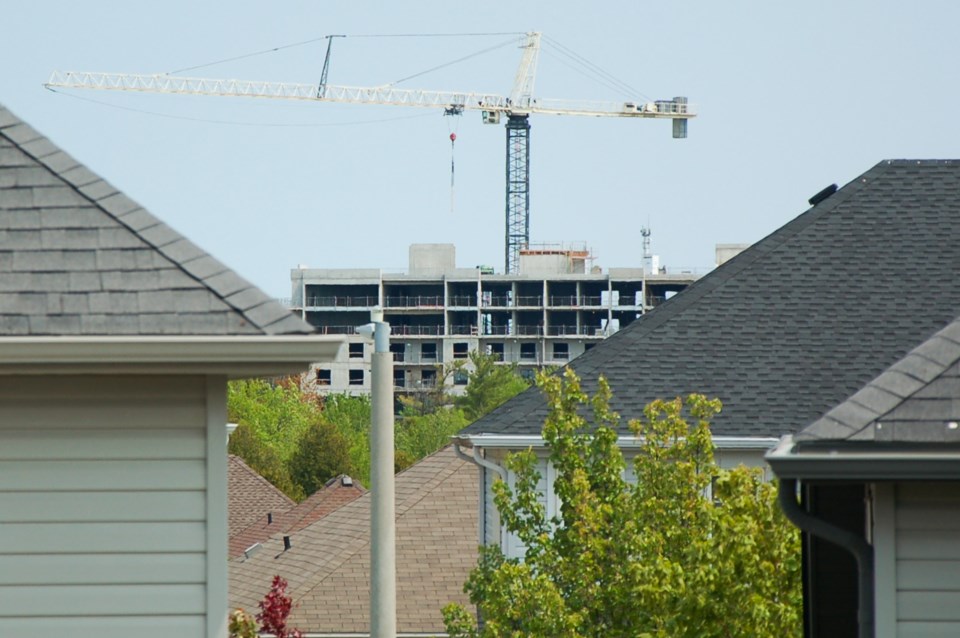City fees on new housing and other builds are set to increase … at least for projects not exempted under provincial legislation.
Council unanimously approved a new fee structure on Tuesday evening that will see development charge (DC) bumps of several thousand dollars per unit – there are numerous categories of builds, each with its own level of fees – but not before being reminded existing residents are forced to pay for a growing portion of the infrastructure needed to support those new builds.
“It’s the shortfall that has a direct link to the tax increase you just approved,” said Susan Watson, who sat on the DC review committee and was the lone delegate to speak to the issue, pointing to the recently finalized 8.52 per cent hike for 2024. “The more you accelerate housing, the more you accelerate tax increases.”
However, Watson acknowledged the bylaw seeks to collect as much DC revenue as allowed by the province.
“We’ve done the most comprehensive review we can,” stated city treasure Tara Baker. “(Provincial DC rules are) highly prescriptive, very highly prescriptive.”
DCs are used to fund infrastructure and services (library, police, fire, etc.) needed to accommodate an increased population the development brings.
The city’s development charge bylaw is set to expire on March 2, but the new one will replace it.
Depending on the type of residential unit being built, the previous bylaw resulted in the city collecting between $50,680 for a single detached or semi-detached home and $21,820 for a bachelor or one-bedroom apartment, as well as $16.24 per square foot for non-residential uses.
Under the new structure, the same detached or semi-detached home will see a fee of $64,813 and a bachelor or one-bedroom apartment would be $28,434, with $25.78 per square foot charged for non-residential uses.
Despite the appearance of increases, the overall impact of provincial legislation changes and the new DCs bylaw is a net loss for the city. Through Bill 23, which came into force last year, the province made changes to the services municipalities can collect DCs for and implemented a number of reductions and exemptions.
According to a study from consultants Watson and Associates, the city could be left with a $232 million shortfall in infrastructure funding.
“I find it ironic that some of you who identify as fiscal conservatives are the ones who are putting the pedal to the metal on housing,” Watson told council.
“We are enriching developers,” she added, noting people are sleeping in tents during this wintry weather while property taxes are used to subsidize development despite a lack of evidence that it results in lower housing prices. “It’s perverse.”




